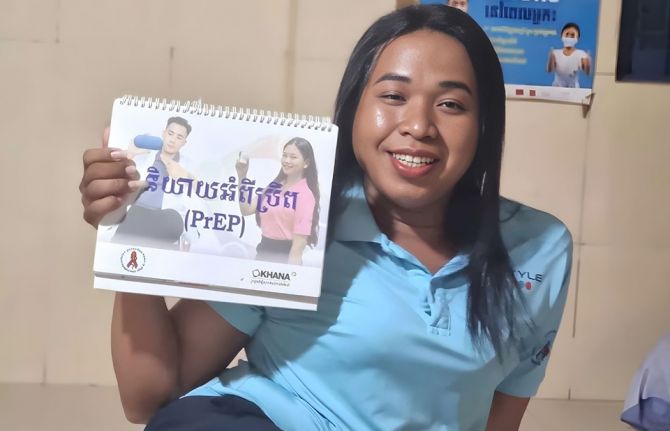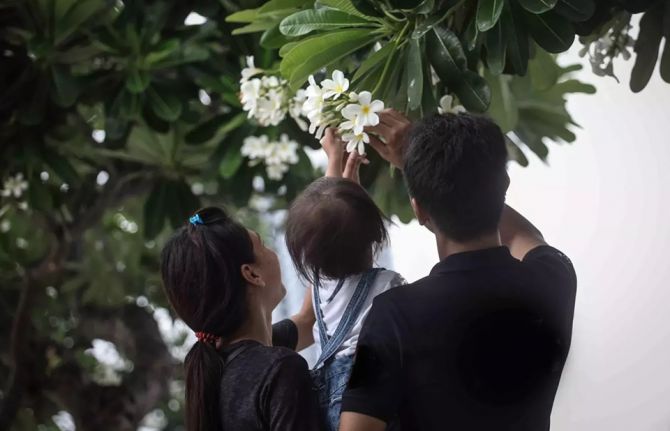

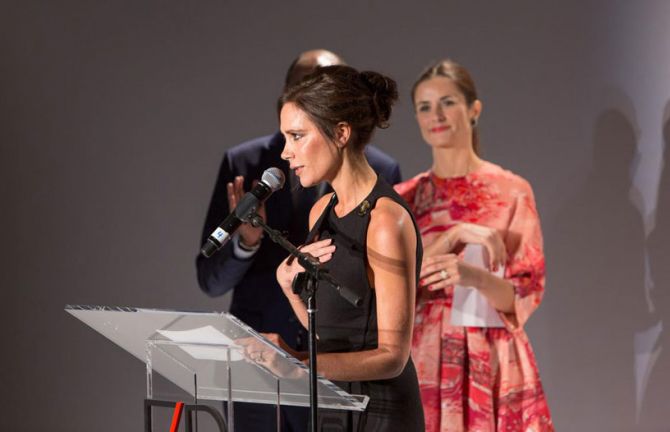
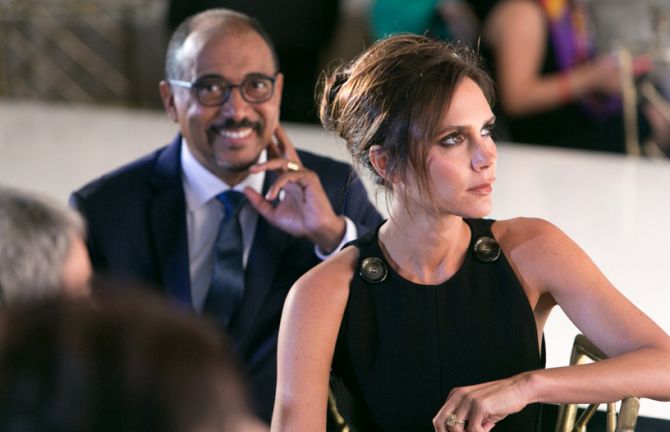


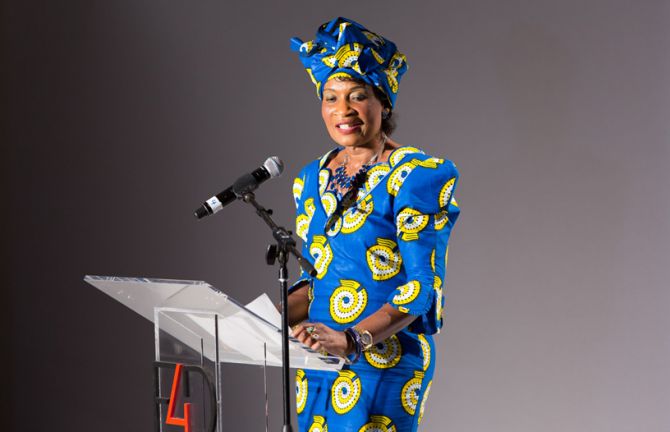
Update
UNAIDS Goodwill Ambassador Victoria Beckham receives Fashion 4 Development Award
30 September 2015
30 September 2015 30 September 2015UNAIDS International Goodwill Ambassador Victoria Beckham has been awarded the Fashion 4 Development Award for her work with UNAIDS and her commitment to make change happen by raising awareness on HIV.
As part of an official mission to New York in her role as Goodwill Ambassador, she, along with UNAIDS Executive Director Michel Sidibé and UNAIDS Deputy Executive Director Jan Beagle, participated in the Fashion 4 Development annual First Ladies Luncheon on 28 September, during which the award was made. Bringing together the world of fashion, First Ladies and business and global change-makers, the event, founded by Evie Evangelou, connects people and communities for positive change.
On 27 September, Ms Beckham took part in the opening of the Social Good Summit. Held on the sidelines of the seventieth session of the United Nations General Assembly in New York, the summit examined the impact of technology and new media on social good initiatives around the world. Ms Beckham spoke on Goal 3 of the Sustainable Development Goals (SDGs), which promotes good health and well-being for all, and underlined how the empowerment of women will be an important tool for achieving the SDG target of ending the AIDS epidemic by 2030.
Other prominent figures attending the summit included Graca Machel, Queen Rania of Jordan and the United Nations Secretary-General’s Special Adviser on Post-2015 Development Planning, Amina Mohammed.
Ms Beckham also had a number of meetings with UNAIDS and partners while in New York, including an emotional encounter with 12-year-old Elijah Zacchary and his family, who shared his personal story of a young person living with HIV.
Quotes
"Giving back is the new black and I believe Victoria Beckham, in her role as International Goodwill Ambassador with UNAIDS, is a great example on how someone in an influential position can empower other women and use her platform for positive change."
"Now the world has come together and agreed on the new development goals - it is time for everyone, everywhere to do their part -- for Elijah and all the other children and adults living with and affected by HIV. I am proud to be working as a Goodwill Ambassador alongside Michel Sidibé and his team at UNAIDS as we strive towards our vision of ending AIDS by 2030."
“Victoria Beckham’s time and commitment to UNAIDS is a powerful voice in our effort to scale up and Fast-Track the AIDS response. I congratulate her on receiving the Fashion 4 Development Award and look forward to undertaking future advocacy missions with her.”
Related

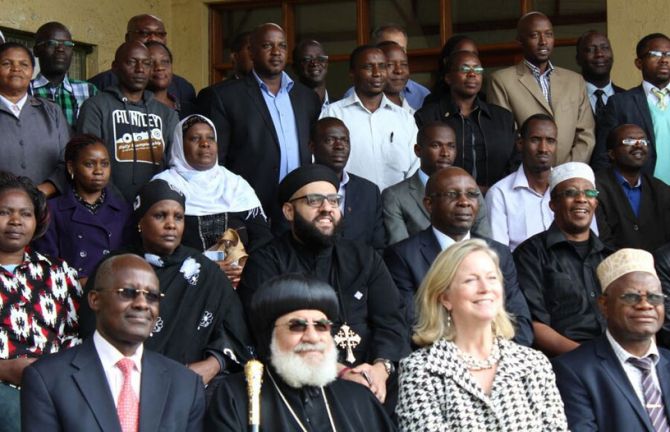
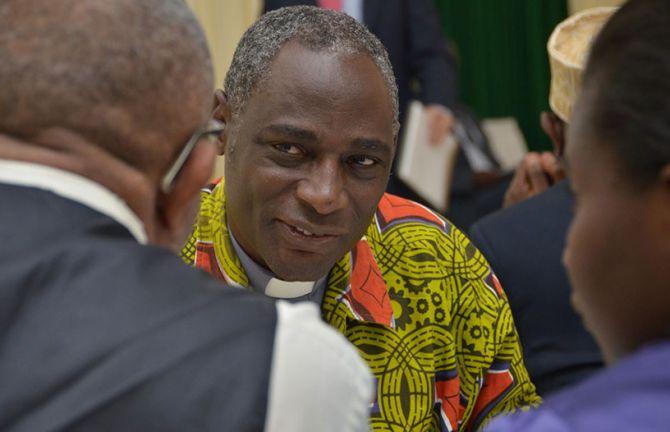
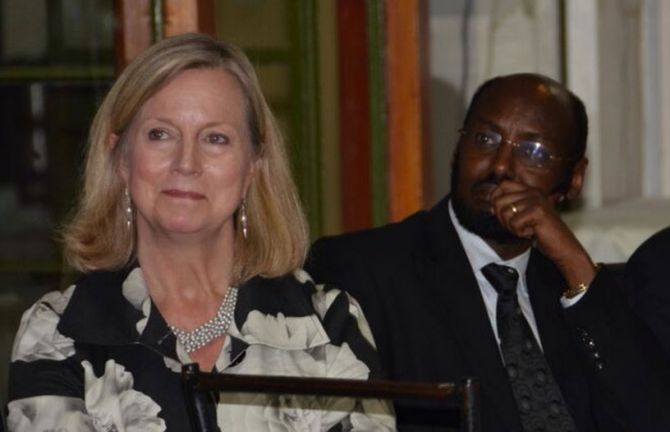
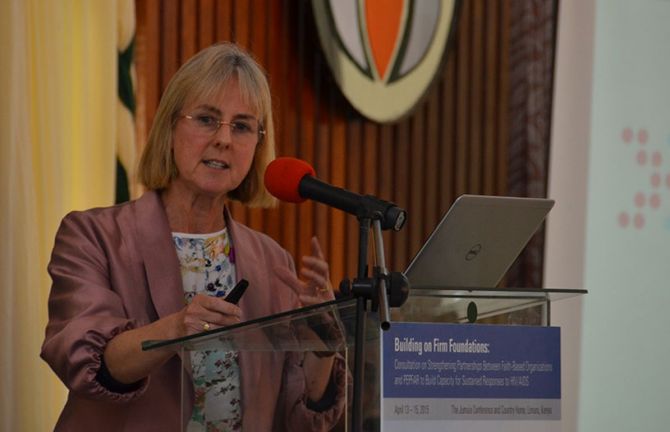
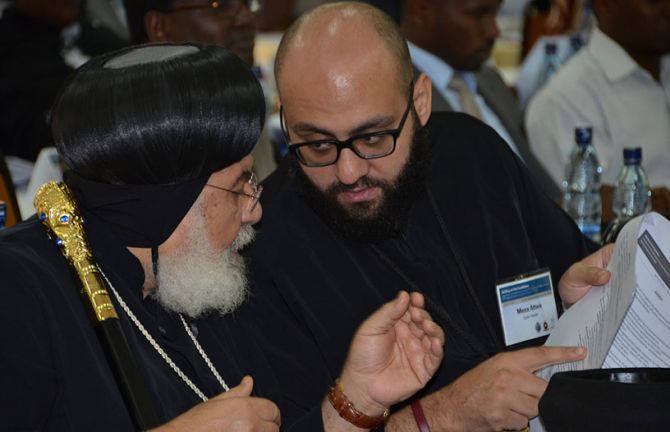
Update
UNAIDS and PEPFAR launch faith initiative
01 October 2015
01 October 2015 01 October 2015UNAIDS and the United States President’s Emergency Plan for AIDS Relief (PEPFAR) have launched a two-year initiative to work with faith-based organizations and strengthen their capacity to respond to HIV.
Unveiled during the seventieth session of the United Nations General Assembly in New York, the first phase of the US$ 4 million programme will increase collaboration with faith communities in several UNAIDS and PEPFAR partner countries across five focus areas. These are: collecting, analysing and disseminating data; challenging stigma and discrimination; increasing demand for HIV services and retaining people in care; improving HIV-related service provision; and strengthening leadership and advocacy.
Faith-based provision of health services has been a cornerstone of the global HIV response from the earliest days of the epidemic. Religious organizations continue to provide health—and other essential services—to local communities around the world. In responding to epidemics and health emergencies, there is evidence showing that no matter how effective a biomedical response is, there is always a need for equally effective collaboration with communities.
This faith initiative will support scale-up of community and faith responses, which are central to achieving the ambitious UNAIDS 90–90–90 treatment target and the PEPFAR 3.0 goals focusing on impact, efficiency, sustainability, partnership and human rights.
The new initiative has been developed in response to 10 recommendations made by faith leaders at a consultation in April 2015, which brought together more than 50 faith leaders from Kenya, Rwanda, Uganda and the United Republic of Tanzania. Recommendations include increased accountability, greater collaboration between faith-based organizations and international partners, and better access to data.
In September 2015, at the United Nations General Assembly, UNAIDS, PEPFAR and Emory University released a report based on the recommendations. The report, Building on firm foundations, explores in depth the scale and scope of faith-based responses in the four countries.
A landmark series on faith-based health-care published by the Lancet in July 2015 called for more research into the work of faith-based health-care providers. The series noted that although it is widely known that faith groups provide care and support to often marginalized communities, there is a need to improve the measurement of how they benefit health-care provision. This is among a number of recommendations that the new UNAIDS/PEPFAR partnership is set to address.
Quotes
“Faith-based organizations are essential partners, particularly in the areas of health service delivery and addressing stigma and discrimination. The partnership with faith-based organizations is critical to ending the AIDS epidemic and making sure that no one is left behind.”
"This initiative responds directly to the recommendations from faith leaders at the consultation in April. Faith based responses to HIV are essential to ending this epidemic. This is not the first time we have heard these recommendations and now, more than ever we must listen, we must respond and we must act together to achieve the ambitious goals of PEPFAR 3.0."
Partners
Related information
Related

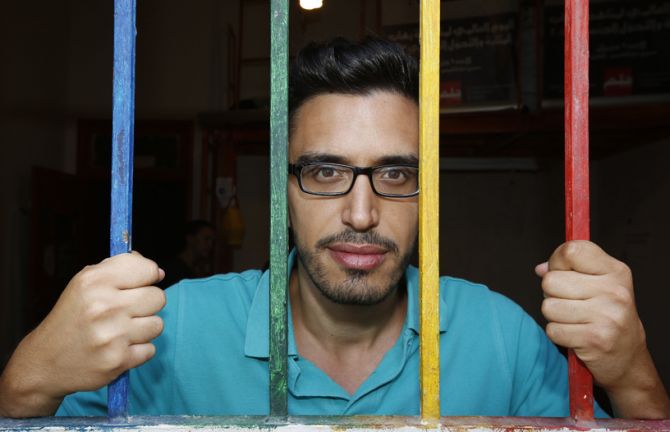
Feature Story
United Nations calls for end of violence and discrimination against LGBTI people
29 September 2015
29 September 2015 29 September 2015Twelve United Nations (UN) entities have released a joint statement calling for an end to violence and discrimination against lesbian, gay, bisexual, transgender and intersex (LGBTI) people. The joint statement highlights the UN’s inter-agency commitment on working with Member States to protect, respect and fulfil the right of LGBTI people to live free from violence, persecution, discrimination and stigma. It also calls on countries to repeal discriminatory laws.
LGBTI people face a wide range of human rights violations. The UN and others have documented widespread physical and psychological violence against LGBTI people in all regions, including murder, assault, kidnapping, rape and sexual violence, as well as torture and ill-treatment in institutional and other settings.
In many countries, the response to these violations is inadequate; in others, human rights defenders challenging these violations are frequently persecuted and face restrictions on their activities. The legislative framework can exacerbate the situation, with 76 countries criminalizing consensual same-sex relationships between adults. These laws expose individuals to the risk of arbitrary arrest, prosecution, imprisonment and even the death penalty in at least five countries.
Punitive environments that marginalize LGBTI people also create significant challenges in responding to HIV. Gay men and other men who have sex with men are 19 times more likely to be living with HIV than the general population, and HIV prevalence among gay men and other men who have sex with men is rising in certain regions, including Asia and the Pacific and Latin America. Transgender women are 49 times more likely to be living with HIV.
In addition to violating the fundamental human rights of LGBTI people, punitive laws severely restrict the ability of LGBTI people to access critical HIV and other health services. Service providers are often forced to stop working, owing to harassment or fear of prosecution.
The UN Secretary-General, Ban Ki-moon, re-affirmed his support for LGBTI rights with a message delivered during last year’s UN General Assembly. “The fight for human rights—and the fight against discrimination—lies at the core of the mission of the United Nations. The fight for equal rights demands global engagement. That is why the United Nations actively works to tackle homophobia and transphobia around the world,” he said.
The UN entities that have signed the joint statement on ending violence and discrimination against LGBTI people are: the International Labour Organization (ILO); the Office of the High Commissioner for Human Rights (OHCHR); the United Nations Development Programme (UNDP); the United Nations Educational, Scientific and Cultural Organization (UNESCO); the United Nations Population Fund (UNFPA); the Office of the United Nations High Commissioner for Refugees (UNHCR); the United Nations Children’s Fund (UNICEF); the United Nations Office on Drugs and Crime (UNODC); the United Nations Entity for Gender Equality and the Empowerment of Women (UN Women); the World Food Programme (WFP); the World Health Organization (WHO); and the Joint United Nations Programme on HIV/AIDS (UNAIDS).

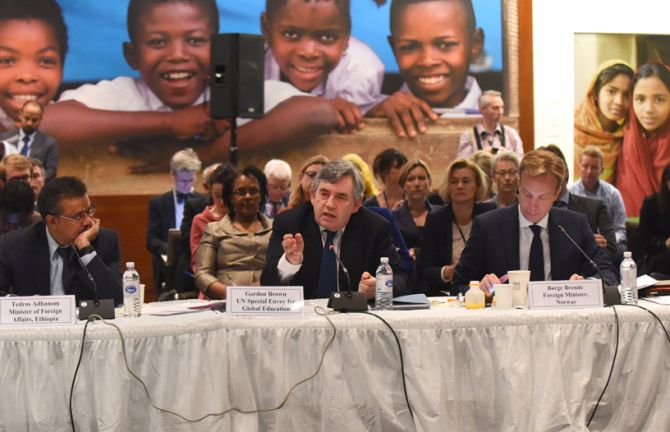
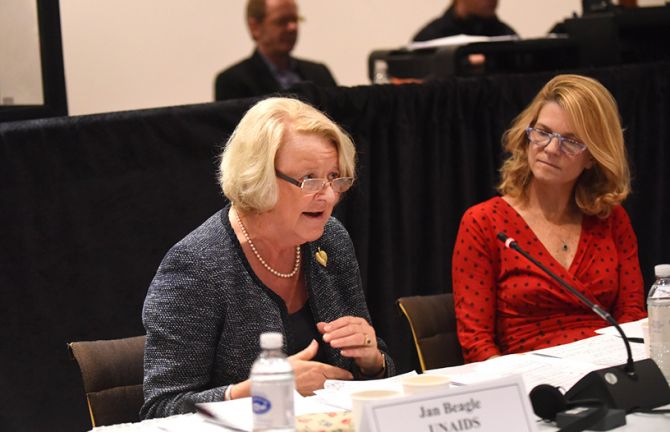
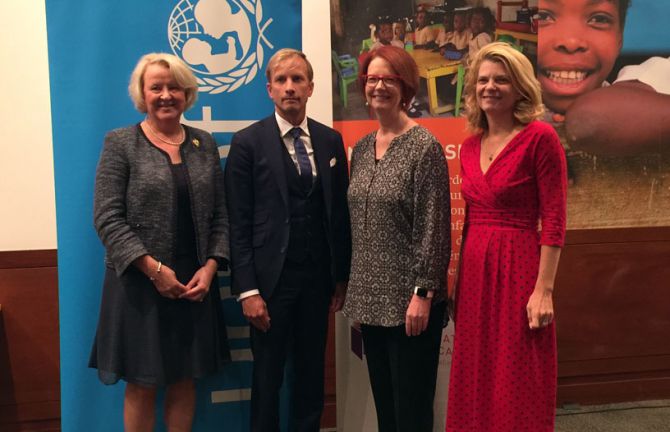
Feature Story
Striving for greater collaboration across health and education in new development agenda
27 September 2015
27 September 2015 27 September 2015Responding to the challenge and opportunity posed by the interconnected Sustainable Development Goals (SDGs), leaders in health and education from across the world came together on the sidelines of the SDG Summit to discuss ways in which the health and education sectors can collaborate and integrate towards joint, people-centered results.
Convened by the Global Partnership for Education, the Global Fund to Fight AIDS, Tuberculosis and malaria, UNICEF and UNAIDS together with the United Nations Foundation and the Global Poverty Project on 26 September 2015, the high-level roundtable stressed the need for adequate financing in health and education to meet the SDGs.
Participants speaking at the event included Julia Gillard, Board Chair of the Global Partnership for Education and former Prime Minister of Australia, Gordon Brown, UN Special Envoy for Global Education, Tedros Adhanom Ghebreyesus, Minister of Foreign Affairs for Ethiopia, Mark Dybul, Executive Director of the Global Fund, and Jan Beagle, UNAIDS Deputy Executive Director. Participants agreed that putting people—particularly women and girls—at the center of the collective health and education efforts will be the key to success in the SDGs.
Adolescent girls, predominantly in sub-Saharan Africa, face higher risks of HIV infection. In 2014, an estimated 60% of all adolescents aged 15-19 years living with HIV were girls. Strong evidence shows that keeping adolescent girls and young women in school reduces the risk of HIV infection. Better educated young women are also more likely to delay sexual debut, to use condoms more frequently, to delay marriage and childbearing and to have better earning potential.
Participants at the event noted that there is significant work to be done to further collaboration between the health and education sectors but that there are good experiences of multisector responses and existing platforms to build on, including those established in the global AIDS response.
Emphasizing how gains in the AIDS response have been proven to maximize impact across other development outcomes, Ms Beagle said: “The AIDS response has shown the value of a multi-sectoral and people-centered approach. From the outset, it was clear HIV was much more than a health issue. It is a development issue, a rights issue, a gender issue that has inclusion of affected communities and evidence and rights-based approaches at its core. Lessons learned from this can be transferred not just to health and education, but across the SDGs.”
Concluding the roundtable, participants committed to continue their engagement, invest in girls’ health and education, focus joint efforts on evidence-based strategies, apply lessons learned through other sectors and monitor success. They stressed the importance of building on the momentum for cross-sectoral collaboration created at the Summit and continuing the dialogue to further advance the integration agenda.

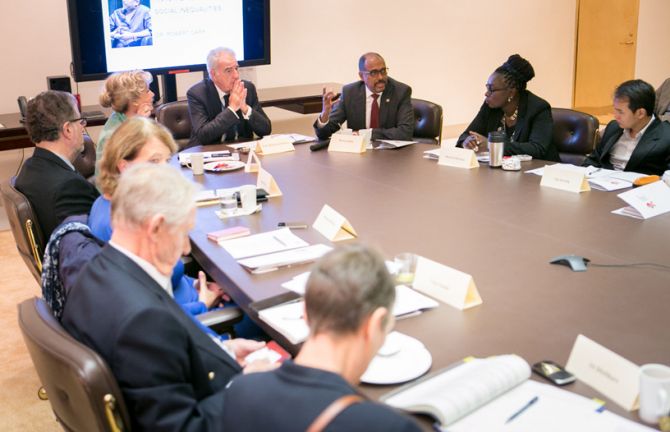
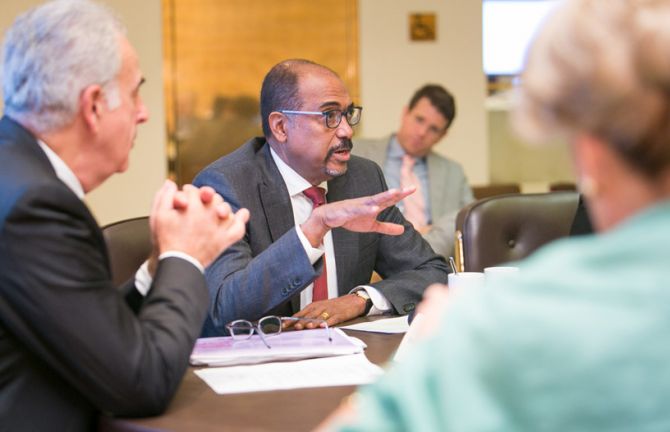
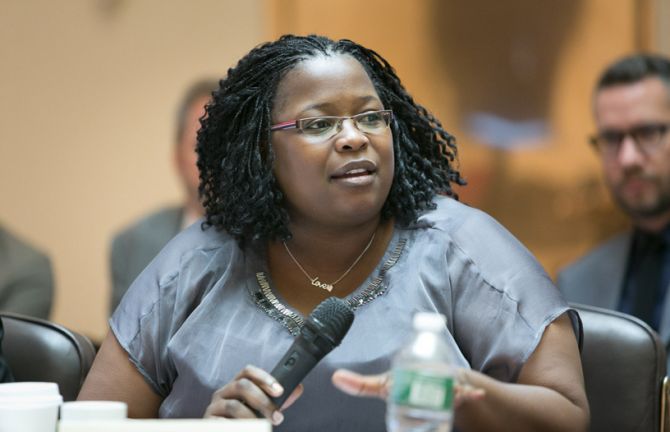
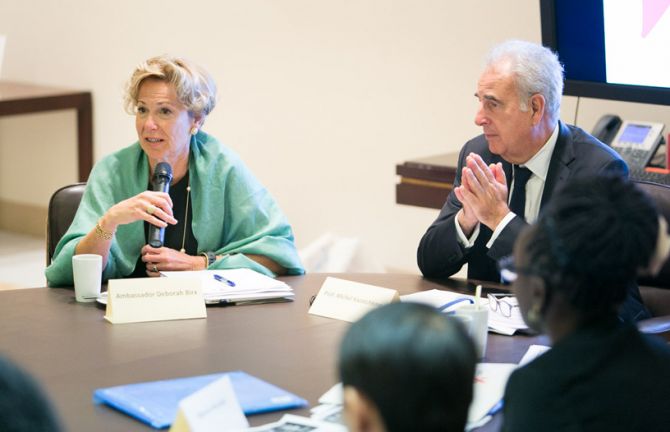
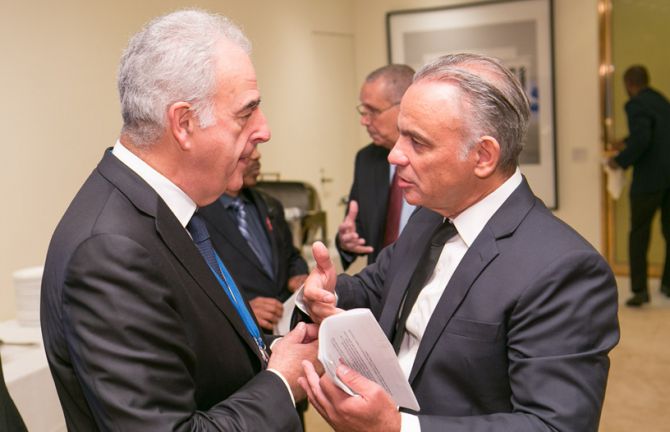
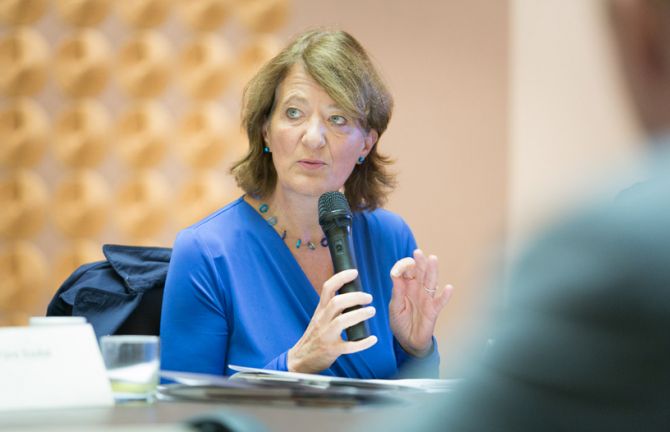
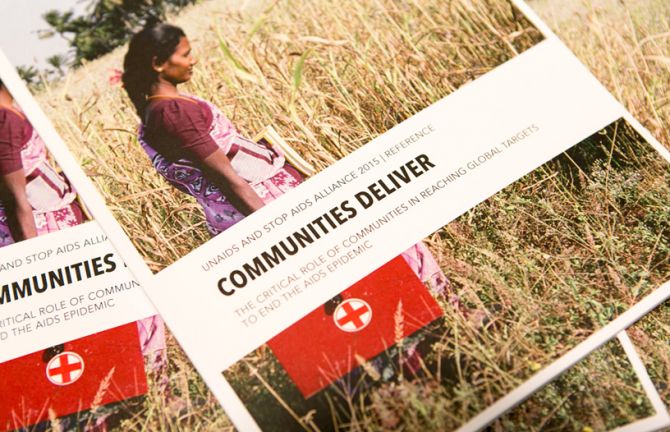
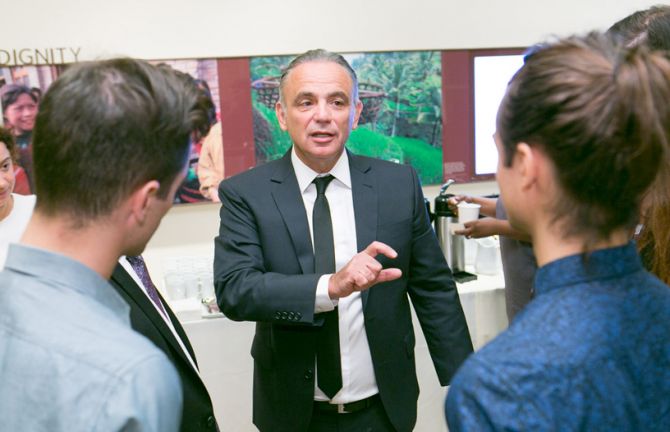
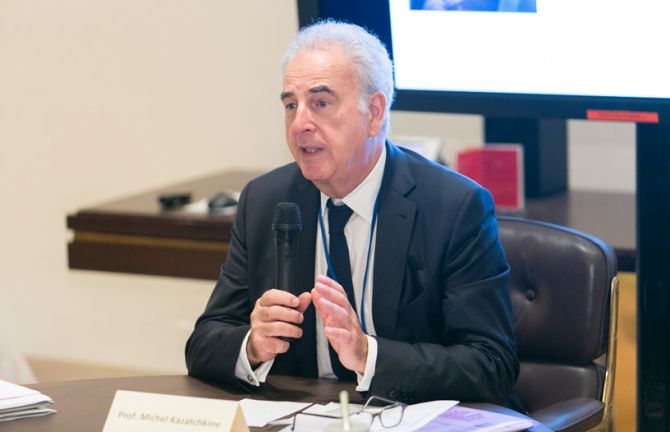
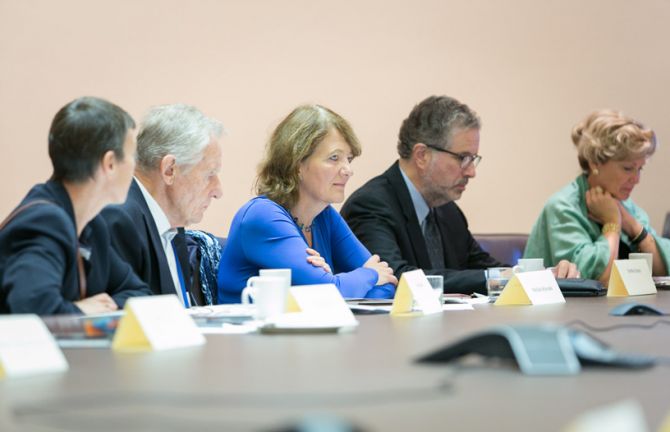
Feature Story
Robert Carr civil society Network Fund receives financial boost at top-level event
29 September 2015
29 September 2015 29 September 2015An active, vibrant and committed civil society has been the mainstay of the global AIDS response for more than three decades and its role is set to become even more critical with the advent of the Sustainable Development Goals and the HIV Fast-Track agenda.
The Robert Carr civil society Network Fund (RCNF) has been committed to strengthening international civil society networks that are active in the challenge to HIV, paying particular attention to underserved and marginalized populations. At a top-level meeting during the 70th session of the UN General Assembly in New York on 29 September, supporters and donors got together to ensure that the fund is replenished and can continue its vital work.
Co-hosts UNAIDS Executive Director, Michel Sidibé and US Global AIDS Coordinator, Ambassador Deborah Birx, joined the Fund’s Chair Michel Kazatchkine and other participants.
Mr Sidibé stressed that community-based organizations were the engine of the AIDS response, engaging in advocacy and research, delivering quality services and reaching people left behind. “Civil society helped break the conspiracy of silence on AIDS. It’s the watchdog, pushing for results,” noted Mr Sidibé. “In this new phase of sustainable development, linking work for healthy people and a healthy planet, we need civil society to advance accountability and ensure shared responsibility. The Robert Carr Fund has shown we can reach all people, and that we can build the political commitment we need.”
The achievements of the RCNF were showcased throughout the meeting, and several participants representing marginalized communities spoke of how they have benefited. These included the AIDS Rights Alliance of Southern Africa’s Felicita Hikuam and Gai Gurung from Thailand’s Youth Lead.
“By working at the regional level we strengthen the capacity of community-based grass roots groups to implement services, to monitor targets, and identify gaps and advocate to address those gaps,” said Ms Hikuam. “Robert Carr was clear about not working in silos. With support of the Fund we are able to work across sectors to build solidarity and move issues forward together,” she added.
Ambassador Birx announced the US Government’s new contribution of USD 10 million to the Fund. “These are the regional organizations that give hope to people at the grass roots. Let’s not underestimate the power of the individual in tackling AIDS. That’s what these community groups are about, standing up to governments and demanding more. Resources from the Fund are about lifting up human beings,” said Ms Birx.
The Fund is named in memory of Jamaica’s Dr Robert Carr who played an integral part in furthering the AIDS response and protecting human rights in inadequately served populations on a national, regional and global level.
Related

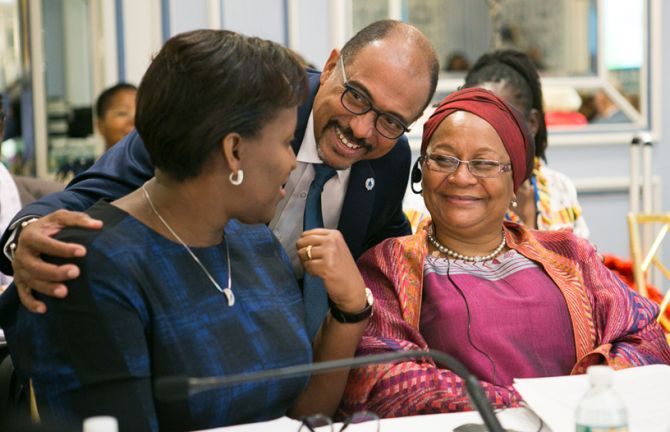
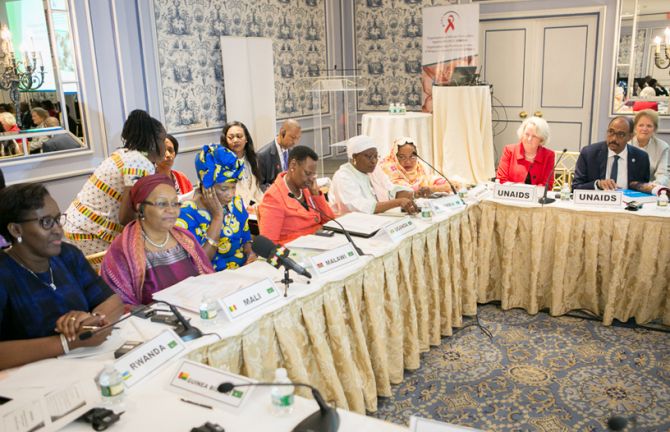
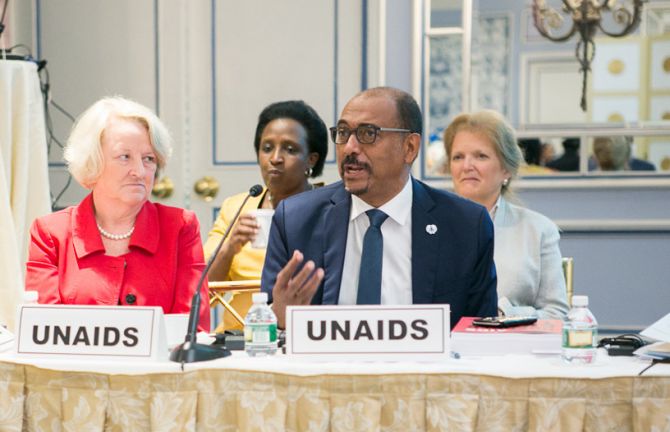
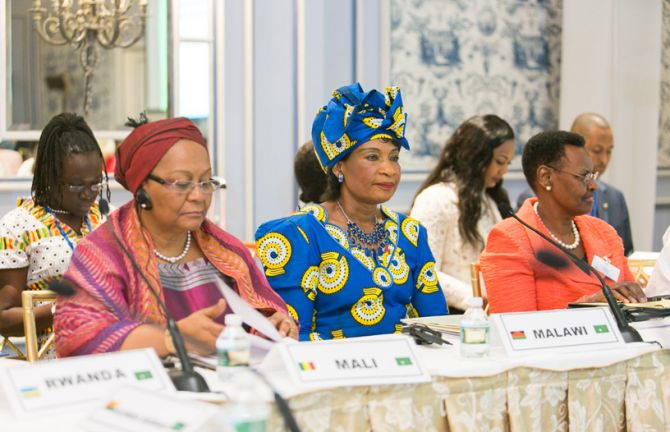
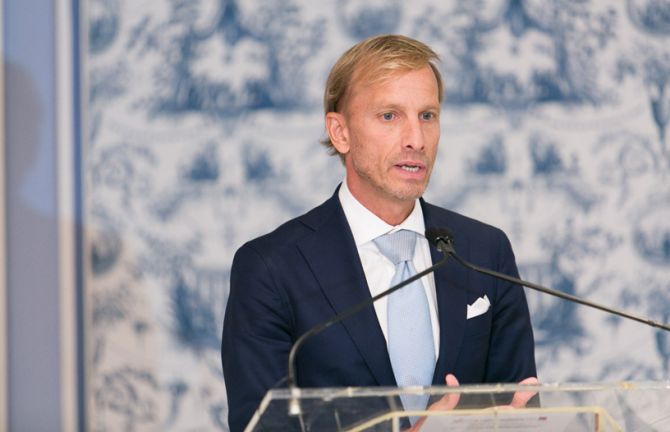
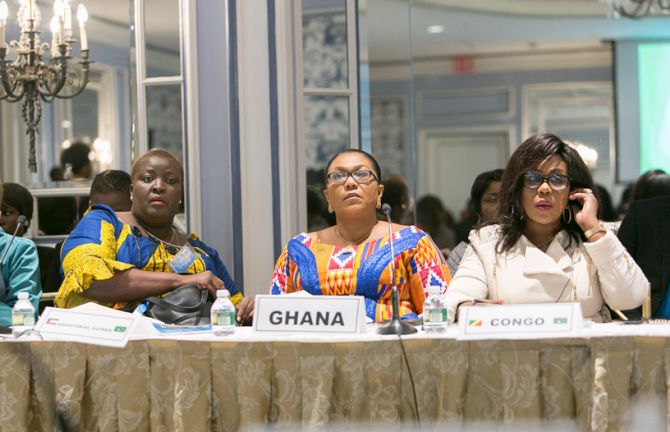
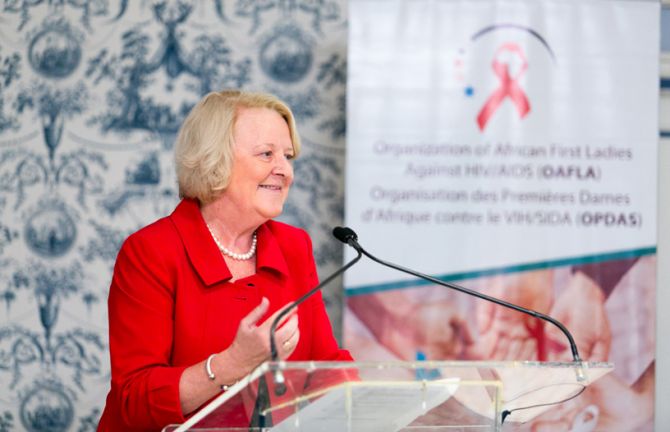
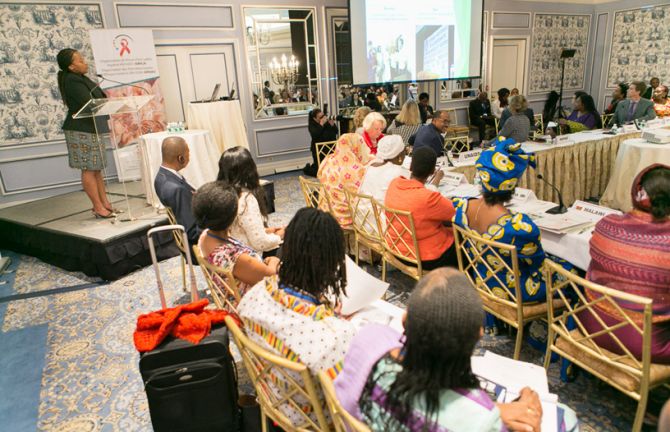
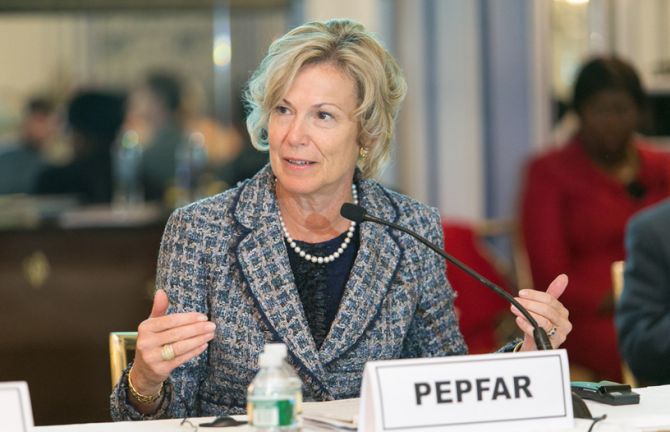
Update
Africa’s First Ladies commit to the SDGs
28 September 2015
28 September 2015 28 September 2015At a high-level event in New York on 28 September, the Organization of African First Ladies Against HIV/AIDS (OAFLA) endorsed the newly adopted Sustainable Development Goals (SDGs) and pledged to redouble their efforts to help ensure a safe and healthy future for women, children and young people.
The event, Building on MDGs to invest in the Post-2015 Development Agenda, took place during the 70th session of the UN General Assembly and was led by Gertrude Mutharika, the First Lady of Malawi and Vice-Chair of OAFLA. The meeting brought together First Ladies from across the continent, as well as heads of UN agencies and major international donors, to explore how the SDGs will tackle the ‘unfinished business’ of the Millennium Development Goals. In addition, Lorena Castillo de Varela, First Lady of Panama, and UNAIDS Goodwill Ambassador Victoria Beckham attended the meeting as special guests.
They were joined by representatives of the Fashion 4 Development (F4D) initiative which aims to harness the influence of the fashion world to create positive social change. F4D co-hosted the meeting with OAFLA, with support from UNAIDS, the UN Population Fund (UNFPA), the International Planned Parenthood Federation (IPPF) and the Global Fund.
OAFLA reviewed its own role in helping attain the SDGs, linking its Strategic Plan 2014-2018 with global efforts to reach the new goals. It also took the opportunity to increase its profile at the global gathering with the aim of developing new partnerships and platforms through which to share its messages, programmes and activities.
After introductory presentations, including one given by UNAIDS Executive Director Michel Sidibé, the meeting broke up into two roundtable discussion groups to examine HIV treatment and prevention for young people; and investing in women’s and adolescents’ health in the post-2015 development framework.
The First Ladies reaffirmed their commitment to eliminate mother-to-child transmission of HIV and keeping mothers alive by championing the end of early marriage and adolescent pregnancy, improving access to HIV services and ensuring that all children diagnosed with HIV receive treatment.
OAFLA members also committed to end new HIV infections among young women and adolescent girls and ensure AIDS is no longer the leading cause of death among adolescents. These commitments are expected to be key priority areas of implementation for 2015 and 2016 by OAFLA member states and their partners.
Quotes
"I salute the great leadership of the African First Ladies in tackling what seemed impossible. You have shown that together we can and will end AIDS as a public health threat. We have achieved the MDG 6 target and now we stand ready to take on SDGs together leaving no one behind!”
“Together as African First Ladies, working with our partners and countries will achieve an AIDS-free generation. We must Fast-Track the UNAIDS 90-90-90 targets and ensure that every child, every woman and everybody receives the HIV treatment, care and support they need.”
“I thank our partners for staying the course to fight an AIDS epidemic that seemed insurmountable. Amazing decline in new infections has been achieved, but we must now integrate the work on AIDS into universal care.”
“I thank the First Ladies of Africa for not giving up the battle against AIDS. We must not be complacent with the current advances in development. With the partnership of UNAIDS and other partners, and the involvement of leaders and parents, we can achieve an AIDS-free generation in Uganda and everywhere.”
“Let the organization of African First Ladies lead us into forming a global movement of First Ladies in the entire world to work together with our countries and partners to end AIDS as a public health threat. I pledge to be an advocate for this in the Americas—together as a world organization we will be stronger!”
"African First Ladies have put their power behind addressing AIDS and promoting women and children's health, with exceptional results. This is a moment of significant opportunity to build upon. Emphasis on gender equality and empowerment of women and girls has resonated across the events at the Summit to adopt the post-2015 agenda as critical to progress in all other areas of the SDGs. There is unified momentum to drive forward this agenda and we are committed to work in partnership with OAFLA towards ending the AIDS epidemic and a sustainable and peaceful world."

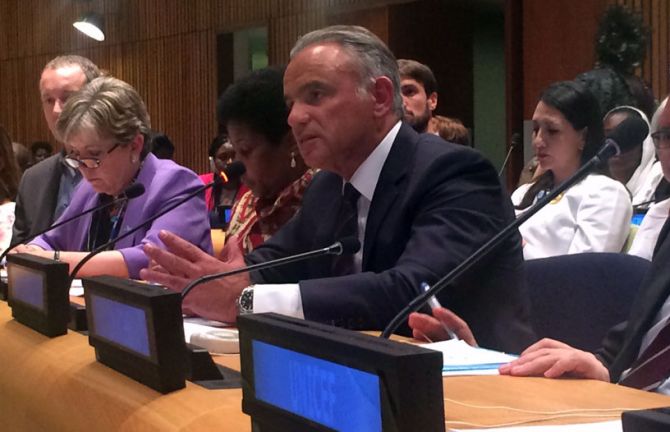
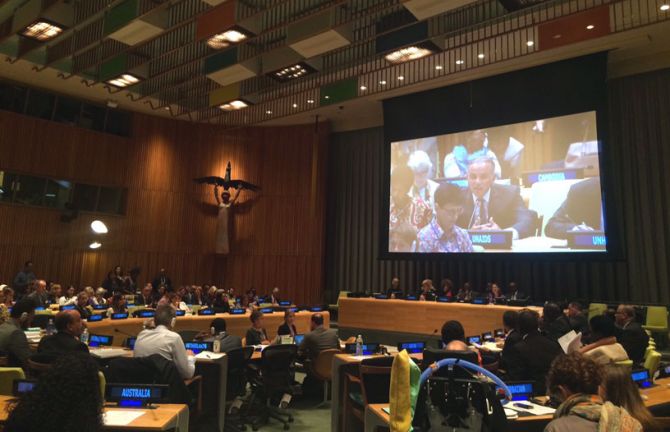
Update
Leaving no one behind in the implementation of the new SDGs
25 September 2015
25 September 2015 25 September 2015As the ground breaking United Nations Sustainable Development Summit got underway in New York on 25 September, high-level delegates discussed how to make the attainment of the newly adopted Sustainable Development Goals (SDGs) a reality on the ground.
The two-day summit, part of the 70th session of the UN General Assembly, is using a series of six interactive dialogues to explore key issues central to the delivery of the SDGs. Each of these dialogues includes representatives of Member States, the UN system, NGOs, civil society organizations, donors and the private sector.
At a dialogue focusing on tackling inequalities, empowering women and girls and leaving no one behind, Member States stressed their commitment to gender equality as a driving force for development and for the achievement of the overall SDGs. Also highlighted was the need for better access to education as well as the heightened vulnerability of women in the context of migration.
UNAIDS Deputy Executive Director Luiz Loures highlighted the fact that although much has been done to challenge inequality there is still a long way to go. He noted that many vulnerable people, such as the current migrants in Europe and people living with HIV, often still face profound inequities and widespread stigma and discrimination.
Mr Loures asserted that women and girls remain disproportionately affected by the HIV epidemic, with adolescent girls 33% more likely to be living with HIV than boys of the same age and transgender women almost 50 times more likely to be HIV-positive than other adults.
The Deputy Executive Director carried a message of hope, however, pointing out that powerful lessons can be learned from the AIDS response which has been one of the biggest social movements in global history. It has led the way, he said, in challenging inequality, promoting human rights, restoring dignity, demanding social justice and leaving no one behind.
As the discussion focused on the means of implementing the targets, Mr Loures highlighted the achievements made by Kenya in the AIDS response and the personal leadership of President Uhuru Kenyatta in demanding data driven policies to illustrate how results can be achieved.
Several key themes informed the five other interactive dialogues: ending poverty and hunger; fostering sustainable economic growth; combating climate change, building accountable and inclusive institutions and delivering on a revitalized Global Partnership.
Conclusions emerging from these dialogues will be presented at the summit’s closing plenary session on 27 September, marking the beginning of a new chapter in the global development agenda.

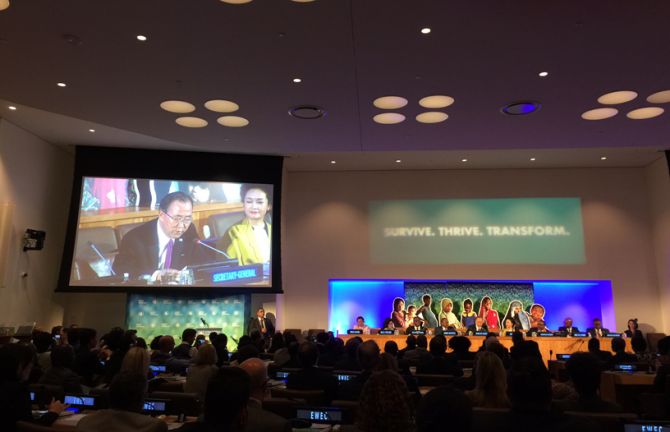
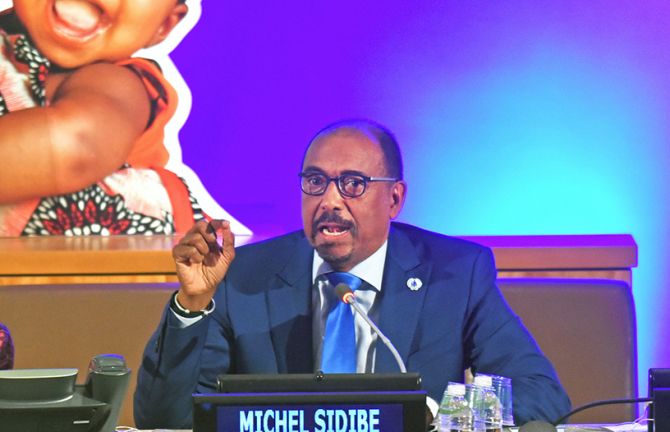
Update
Launching the updated global strategy for women's, children's and adolescents’ health
27 September 2015
27 September 2015 27 September 2015If the newly adopted Sustainable Development Goals (SDGs) are to be achieved the needs of women, children and adolescents must be at the heart of the development agenda, said United Nations Secretary-General Ban Ki-moon as he launched a bold initiative at the 70th session of the UN General Assembly.
The updated Global Strategy for Women’s, Children’s and Adolescents’ Health is intended to ensure that the SDG commitment to accelerate progress in reducing newborn, child and maternal mortality becomes a reality for women, children and young people around the globe.
Launched on 26 September during the UN Sustainable Development Summit, the initiative builds on the Global Strategy for Women’s and Children’s Health, spearheaded by the Secretary-General in 2010, that blossomed into the Every Woman Every Child global movement. This movement has seen the galvanizing of political commitment, multi-stakeholder partnerships and action that has led to significant progress in reducing maternal and infant mortality. However, Ban Ki-moon told the gathering that efforts now need to step up a gear.
To ensure that the necessary resources are available, a major section of the high-level two-hour event involved the announcement of key strategic commitments from world leaders, multilateral organizations, CEOs from the private sector and other partners.
Young people also played a vital role, taking the floor to tell the gathering what they want and need over the next 15 years and what they commit to do to improve the health of their generation. Young people representing The PACT, a coalition of youth organisations supported by UNAIDS, as well as Restless Development and Y-PEER shared commitments to the updated Global Strategy to end all preventable maternal, child and adolescent deaths by 2030 and the end of the AIDS epidemic by 2030.
Introduced by UNAIDS Executive Director Michel Sidibé, Ishita Chaudhry spoke about the importance of governments committing to adolescents and to support young people to be agents of change to help ensure that mothers, children and adolescents everywhere survive and lead healthy lives.
Quotes
"The Global Strategy for Women’s, Children’s and Adolescents’ Health, which I am proud to launch today, will help to build resilient and healthy societies. We have shown that our partnership can yield concrete results. I, and the entire UN system, remain dedicated to saving and improving the lives of the most vulnerable amongst us."
"As part of ACT!2015, we commit to engage with governments to ensure we reach an evidence-informed, data-driven response that addresses the realities of young people’s lives and achieves better health outcomes."

Update
Young people leading change to end the AIDS epidemic in the post-2015 era
24 September 2015
24 September 2015 24 September 2015Young community leaders, United Nations representatives and advocates discussed how young people can make a difference in ensuring that the Sustainable Development Goals (SDGs) targets on HIV and sexual and reproductive health and rights can be realized for all, including marginalized young people.
The youth-led event took place on 24 September on the sidelines of the 70th session of the United Nations General Assembly, taking place in New York. It was co-convened by UNAIDS, the Link Up Consortium, Stop AIDS Now, the PACT, the International HIV/AIDS Alliance, the Global Youth Coalition on HIV/AIDS and the Civil Society Working Group on HIV.
According to the participants, the SDGs will need to include the voices of young people to set national priorities, develop and monitor strategies and indicators, and review processes at all levels for their successful implementation in order to reach the targets.
To ensure that no one is left behind, the participants also stressed the need to set up systems to gather comprehensive data about groups recognized as vulnerable to discrimination and exclusion, as well as other relevant groups.
The common message agreed by all panelists was that youth-led accountability is critical to ensure that governments make progress to achieve the end of the AIDS epidemic and universal access to sexual and reproductive health services.
Quotes
“A human rights based approach is crucial for all of the SDGs. Part of this approach is to have youth, especially marginalized youth, meaningfully involved in implementation and monitoring. Without that, we cannot achieve this agenda.”
"We must work with young people as key partners, rather than as targets. This means valuing young people's expertise, supporting skills development, employing young people, and providing dedicated space for young people on decision-making bodies."
“It is essential that we support and build the capacity of youth organisations to engage at country level with the SDGs to sustain political momentum and to achieve the end of the AIDS epidemic. This is how we can together address inequities in access to health, and advance sexual and reproductive health and rights.”
Related
 “Who will protect our young people?”
“Who will protect our young people?”

02 June 2025

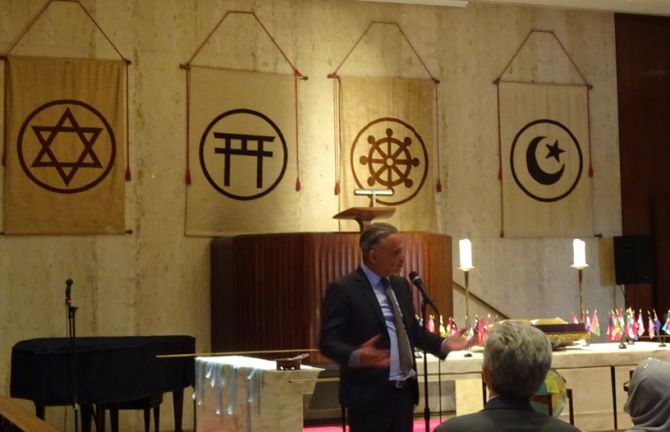
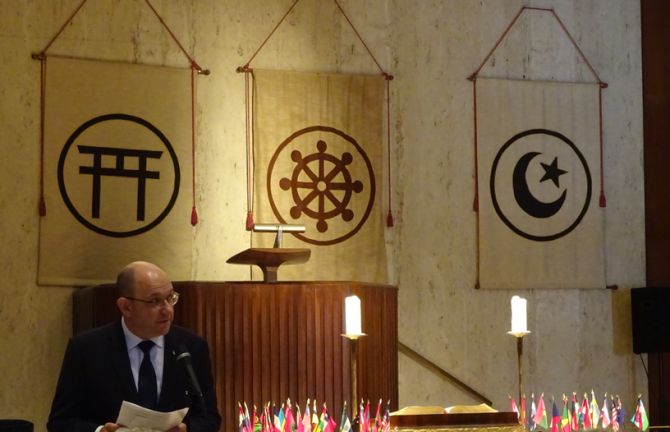
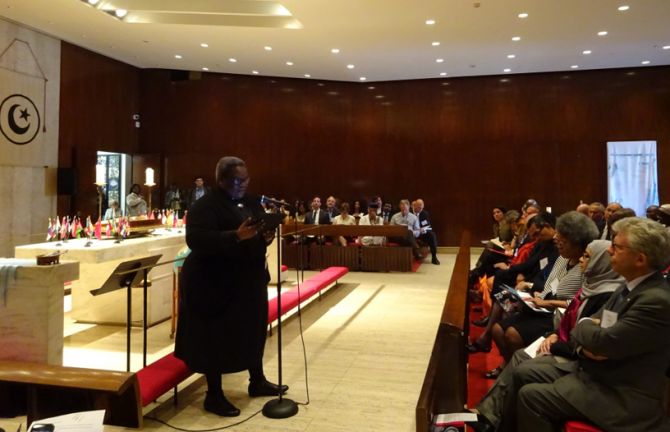
Update
Faith leaders meet to step up action on poverty and development
24 September 2015
24 September 2015 24 September 2015Faith-based communities around the globe are at the forefront in pushing societies to do more to tackle poverty and meet new global development priorities. This was the message emerging from a high-level event that took place on the eve of the Pope’s address to the 70th session of the United Nations General Assembly in New York this week.
Entitled Meeting the Moral Imperative to End Extreme Poverty and Realize the Sustainable Development Goals (SDGs), the meeting, held on 24 September, brought together a host of faith leaders and faith-based organizations, as well as representatives of governments, multilateral organizations such as the World Bank Group and the United Nations, including UNAIDS.
The participants explored concrete ways in which they could work together, alongside governments and other partners, to ensure that attaining the SDGs becomes a reality, with faith-based groups using their reach and influence to make a difference on the ground. Faith leaders presented an action framework to help faith-based organizations plan and implement specific action at the national level.
Prominent faith leaders at the event recognized, and showcased, the role that these organizations have traditionally played in helping to alleviate poverty and challenging critical health and development issues, such as HIV. The AIDS response has benefited enormously from their efforts in, for example, health-care provision and challenging stigma and discrimination. This is especially the case in sub-Saharan Africa, where faith-based organizations provide services to millions of people living with HIV, as recognized by the recently released Lancet series on faith-based health care.
Phumzile Mabizela, the Executive Director of INERELA+, the global interfaith network of faith leaders who are living with or personally affected by HIV, took the opportunity during the meeting to launch a call to action for faith-based organizations to Fast-Track the AIDS response in eastern and southern Africa. They pledged to use the social capital they have developed in their respective communities to promote the Fast-Track approach and the implementation of effective programmes that champion expanded access to antiretroviral therapy and HIV testing and prevention.
Quotes
“Our faiths call on us to reduce inequality and reach out to those left behind. The SDG agenda strives to do just that. We must work together to eradicate poverty and leave no one behind.”
“In some countries, faith based organisations are responsible for 60% of service delivery. The challenge before us will be the implementation of the SDGs. We need to be humble and you should not be. Learning from faith based organisations will help to define the way forward.”
“The faith community is the guardian on public issues that are difficult. We need to reach out to people, especially young women who cannot make their own decisions about their bodies. Are our sacred spaces safe spaces for those who have survived sexual violence and rape?"





